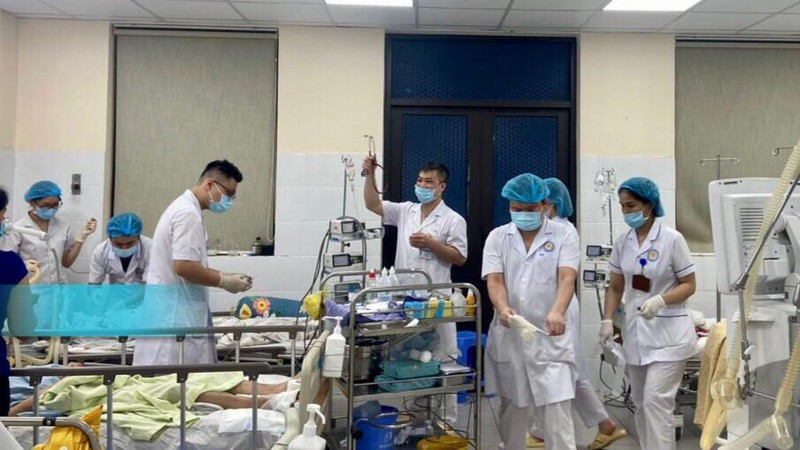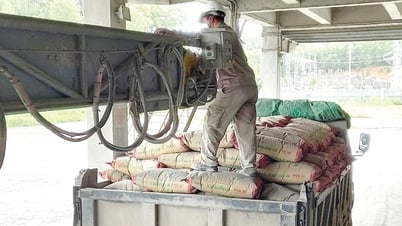After 6 days of intensive treatment at Hoa Binh General Hospital, the 34-year-old female patient poisoned by aconite was saved.

On April 4, Hoa Binh General Hospital received a 34-year-old female patient poisoned by aconite leaves and admitted in critical condition.
About 3 hours before admission, the patient ate 5 poison ivy leaves. About 30 minutes after eating, the patient experienced abdominal pain, headache, blurred vision, drooping eyelids, weak limbs, and head and neck bending forward, unable to lift himself up.
The patient was taken to the District Medical Center for first aid and quickly taken to the Hospital. Hoa Binh Provincial General Hospital.
Upon admission, the patient was in a coma, with respiratory failure, low blood pressure, drooping eyelids, weakness in all four limbs, sweating, and cold hands and feet. The patient was quickly intubated and placed on a ventilator, given intravenous fluids to raise blood pressure, induced vomiting, gastric lavage, given laxatives, and given intravenous nutrition.
In the vomit and gastric lavage fluid, there was aconite that the patient had eaten before.
After 6 days of treatment and intensive care, the patient's health is now stable and he has been discharged from the hospital.
The plant called Aconite (also known as the Strychnos nux-vomica plant) belongs to the Strychnos nux-vomica family and contains toxic alkaloids. The physiological activity of alkaloids is very high in humans and animals, especially in the nervous system, causing convulsions, muscle paralysis, respiratory failure, heart rhythm disturbances, and can cause death in a short time if not treated promptly. A small amount of alkaloids can also cause death.
Hemlock is a climbing plant with small leaves (like betel leaves but thin), yellow flowers.
In case of poisoning from aconite, first aid is needed (inducing vomiting, gastric lavage) and the patient is quickly taken to a medical facility.
At medical facilities, patients need to quickly eliminate toxins from the digestive tract (inducing vomiting, gastric lavage), use detoxifying drugs, mechanical ventilation, blood filtration, and correction of heart rhythm disorders and water and electrolyte disorders.
Source



![[Photo] National Assembly Chairman Tran Thanh Man receives First Vice Chairman of the Federation Council of Russia](https://vphoto.vietnam.vn/thumb/1200x675/vietnam/resource/IMAGE/2025/9/2/3aaff46372704918b3567b980220272a)


![[Photo] Lao President Thongloun Sisoulith and President of the Cambodian People's Party and President of the Cambodian Senate Hun Sen visit the 95th Anniversary Exhibition of the Party Flag Lighting the Way](https://vphoto.vietnam.vn/thumb/1200x675/vietnam/resource/IMAGE/2025/9/2/3c1a640aa3c3495db1654d937d1471c8)
![[Photo] Special art program "Da Nang - Connecting the future"](https://vphoto.vietnam.vn/thumb/1200x675/vietnam/resource/IMAGE/2025/9/2/efdd7e7142fd45fabc2b751d238f2f08)
![[Photo] National Assembly Chairman Tran Thanh Man meets with First Secretary and President of Cuba Miguel Diaz-Canel Bermudez](https://vphoto.vietnam.vn/thumb/1200x675/vietnam/resource/IMAGE/2025/9/2/c6a0120a426e415b897096f1112fac5a)


















































































Comment (0)